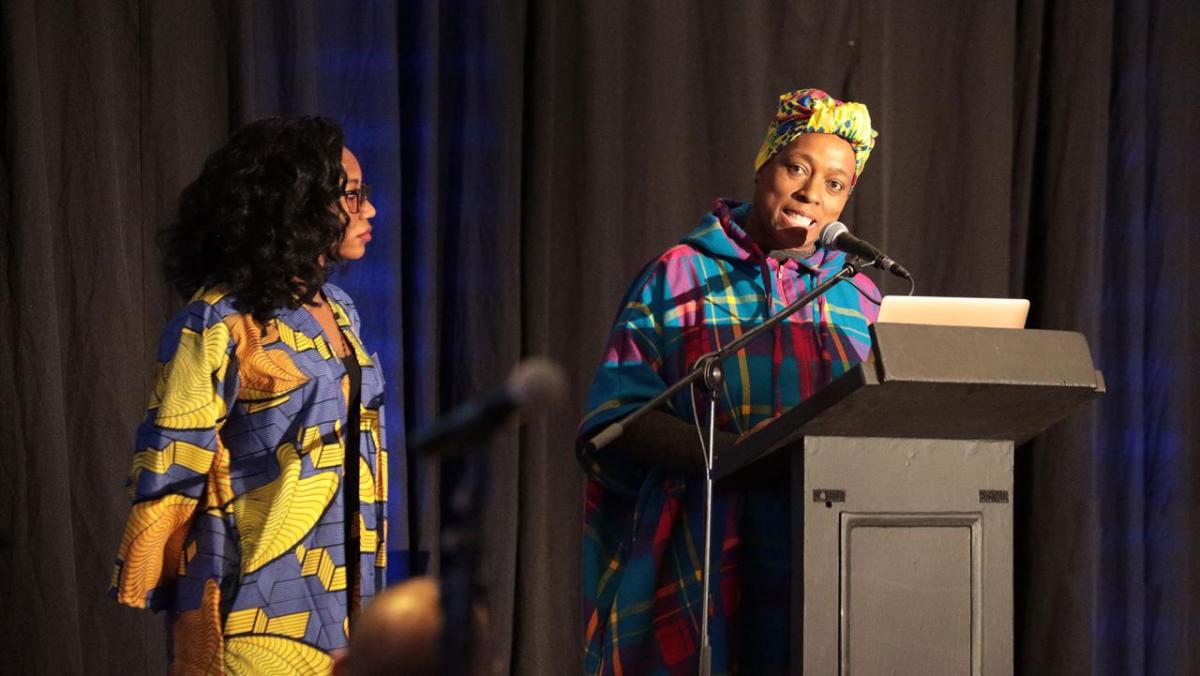Gilead Sciences: Global Community Accountability Groups Pave Way Forward for Inclusive Clinical Trials
Published 03-09-23
Submitted by Gilead Sciences

Yvette Raphael is personally familiar with the health needs in her South African community. She’s a co-founder of an organization working to help end the HIV epidemic, and a person living with HIV. But her perspective, and the views of women and Black, LGBTQ+ and Latinx communities, have historically been missing from clinical trials.
“It’s essential if clinical trials are to succeed for those individuals who are most impacted and would most benefit to have significant contributions to the development of these studies,” says Yvette, Executive Director of Advocacy for the Prevention of HIV and AIDS in South Africa.
Many of the communities who could most benefit from pre-exposure prophylaxis (PrEP) for HIV prevention haven’t been included in clinical trial design and execution over the years – but Gilead’s PURPOSE studies made their inclusion a primary goal.
“Ever since the beginning of the HIV epidemic, we’ve known that the science is better when everyone has a seat at the table,” says Moupali Das, Gilead’s HIV Prevention Clinical Lead. “I'm passionate about ensuring that the development of new prevention options is done in partnership not only with physicians, but importantly with community and advocacy leaders.”
Now, Gilead’s PURPOSE studies, which are investigating the use of therapies to help reduce individuals’ chances of acquiring HIV, are upending the ways of conducting trials – a shake-up that has already led to improvements in the design and set-up of trials.
Meet the Global Community Accountability Group
A core part of the approach with PURPOSE is the creation of Global Community Accountability Groups (G-CAGs). Members of the G-CAGs, including Yvette, were selected based on their significant contributions to the global HIV space in advocacy and experience with clinical development work.
There are currently two G-CAGs, one for PURPOSE 1 and one for PURPOSE 2, each with around 20 members across the globe. Individual trial sites also have their own community-specific community advisory board, creating multiple layers of advocacy feedback.
The PURPOSE 1 trial, being conducted in South Africa and Uganda, is investigating whether the use of an investigational, twice-yearly injection reduces the chances of acquiring HIV in women. The PURPOSE 2 trial, taking place in the United States, South Africa, Brazil and Peru, is investigating whether the same medication reduces the chances of acquiring HIV through sex among cisgender men, transgender individuals and gender non-binary individuals who have sex with people assigned male at birth.
“We’ve included diverse voices from the very beginning of the trials’ process. The G-CAGs began their work nearly a year before enrollment, even before we developed protocols,” says Moupali. “The members are involved from the inception of trial design, to offer insight into recruitment and retention, ongoing communication strategies, and serving as links between trial site specific CABs and investigators."
Making adjustments from feedback
Both PURPOSE trials adjusted plans during development to reflect feedback from its G-CAG. PURPOSE 2 includes transgender men and gender nonbinary individuals who have sex with men, and the G-CAG offered essential insight around the language to use for recruitment and ongoing communications with the participants. The PURPOSE 1 G-CAG, meanwhile, advised on and confirmed the importance of the inclusion of people who are pregnant and lactating people in the trial, an inclusion that is unique for HIV prevention trials. The advisors also flagged the importance of addressing concerns about potential drug interactions with gender-affirming hormone therapy.
This approach, which also includes the selection of trial sites with a track record of commitment to diverse communities and site investigators who are themselves members of the community, can serve as a framework for future trials. At Gilead, this approach is being replicated in other HIV trials.
Leadership from within the communities we serve
Last summer, members of the PURPOSE 1 G-CAG and site investigators from Uganda and South Africa came together for the first time in South Africa to discuss learnings and best practices.
Many of these investigators had helped shape PURPOSE’s geographic footprint, ensuring the trial established sites in regions like the Eastern Cape, where Dr. Moelo Malahleha works.
“Through our conversations with various stakeholders in the region, it became clear there was little awareness of HIV prevention research and its implications on the community,” explains Moelo. “This collaboration has allowed us to identify existing barriers in the Eastern Cape, understand local HIV resources needed and confirm participation interest to get these programs up and running.”
Team members agreed that by working together, they’re laying a solid foundation to ensure the data collected in the trials are aligned with the needs of the community – including essential qualitative feedback gathered throughout the recruitment and trial process.
“It’s everyone’s dream to bring community leaders and researchers in one room,” says Yvette. “We could all feel the excitement of being together and continuing to learn from one another.”
Originally published by Gilead Sciences

Gilead Sciences
Gilead Sciences
Gilead Sciences, Inc. is a research-based biopharmaceutical company that discovers, develops and commercializes innovative medicines in areas of unmet medical need. The company strives to transform and simplify care for people with life-threatening illnesses around the world. Gilead has operations in more than 35 countries worldwide, with headquarters in Foster City, California.
More from Gilead Sciences

